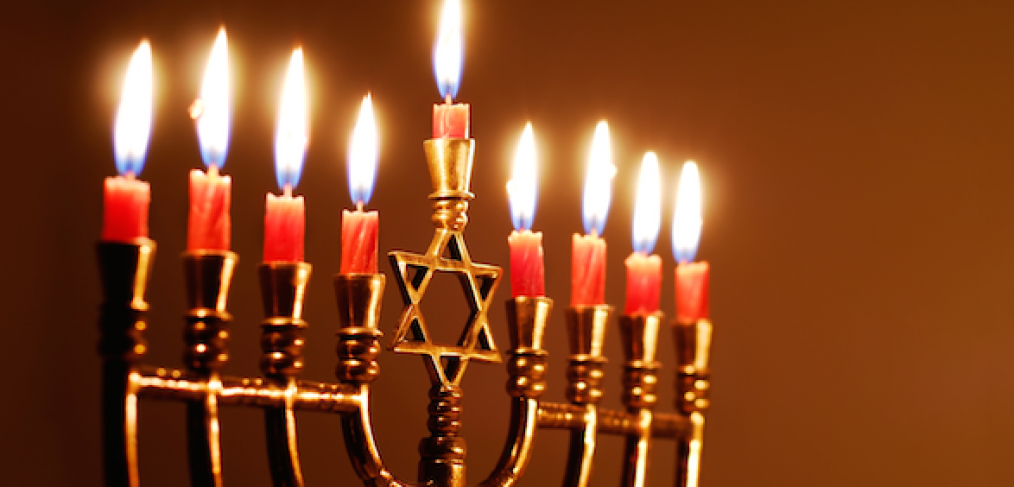
‘Keep it Religious’ and Other Lessons from the Real Chanukah Story
Most of us have known the Chanukah story since we were little. During the Maccabean Revolt in the 160’s BCE, the story goes, the Jewish forces resis ng Roman oppression were victorious over their enemies. They took the Temple back into Jewish hands, and went to rekindle its eternal light. But when they went to do so, they found only one little jar of oil to use for the flame – enough to last for just a single day. They lit the flame anyway, and to everyone’s great and eternal relief, a great miracle happened there. God intervened, and the little jar of oil lasted for fully eight days, long enough to get their oil supplies replenished to keep the fire burning on.
Well I hate to be the bearer of bad news, but historically speaking, it probably didn’t happen quite that way. In fact, the most contemporary account we have of the Chanukah tale comes from the Books of Maccabees – books which, by the way, didn’t even make it into our bible. If you read the account of that war in the Books of Maccabees, I’m afraid you won’t find any reference whatsoever to the story of the little jar of oil. Instead, the festival it describes to celebrate what we now call Chanukah is a military festival, celebrating the very human victory of the Maccabees over their foes.
In fact, the Books of Maccabees don’t even call the festival Chanukah. Instead, there the festival is called Sukkot B’Kislev – December Sukkot. Evidently, the festival was originally eight days long because it commemorated the late celebration of Sukkot after the ravages of war prevented the Jews from celebrating Sukkot on time during the rebellion.
The story of the jar of oil only appears in the form we now have it in the Talmud, which was codified around 600 years after the event. Until then, as I mentioned, Chanukah was a military festival – a celebration of the Jews’ uprising over the ruling powers and really whumping them.
Evidently, during the centuries following the Maccabean Revolt, it became unwise for Jews to have a holiday celebrating the defeat of their rulers. That’s because, for Jews living at the whim of the ruling powers of their day, celebrating a time when we overthrew those powers would have been, shall we say, impolitic, at best.
The story of the jar of oil, then, was added to our understanding of Chanukah to transform the event from a military celebration into a religious one. In fact, as you may know, Chanukah has always been a minor festival in Judaism, and this is probably because of the discomfort our sages had with a festival that they knew had secular, military roots.
“Glickman,” many people cry when I teach this story, “you’ve ruined Chanukah for me!” It was such a nice little holiday when it celebrated the jar of oil, but now you’ve taken away the magic!”
Well feel this way if you must, I suppose, but I don’t think you have to. After all, while the story of Chanukah has certain military roots, the broader story about the Chanukah story itself is undeniably a religious one. Ours is a people that have decided not to celebrate this wonderful military victory, and instead remember God’s often miraculous role in our lives. Ours is a people that celebrate not a secular story of human agency, but rather the magical story of God’s intervening presence in the world. Ours is a people that celebrate not nitzachon, victory, but rather Chanukah, dedication – our dedication to all that is good and sacred and godly in our world.
In that light, I hope this is truly a wonderful Chanukah festival for you. I hope it is a time of light, and hope, and great, miraculous, and magical transformation for you and everyone you love.
From me to you, best wishes for a Chag Sameach, a very wonderful Chanukah, 5778.
